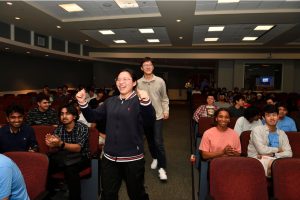
Students from more than 40 universities convened on the Homewood campus September 13 through 15 for HopHacks—the annual coding marathon hosted each fall by the Whiting School of Engineering’s Department of Computer Science.
The weekend-long event challenges teams of up to four “hackers” to design new projects from scratch within the confines of Hodson Hall in only 36 hours. Participants also had the opportunity to play games and solve puzzles with their peers, attend mentoring workshops, and network with industry and university sponsors, including Palantir and the Johns Hopkins Applied Physics Laboratory—as well as brands like Cards Against Humanity and Red Bull.
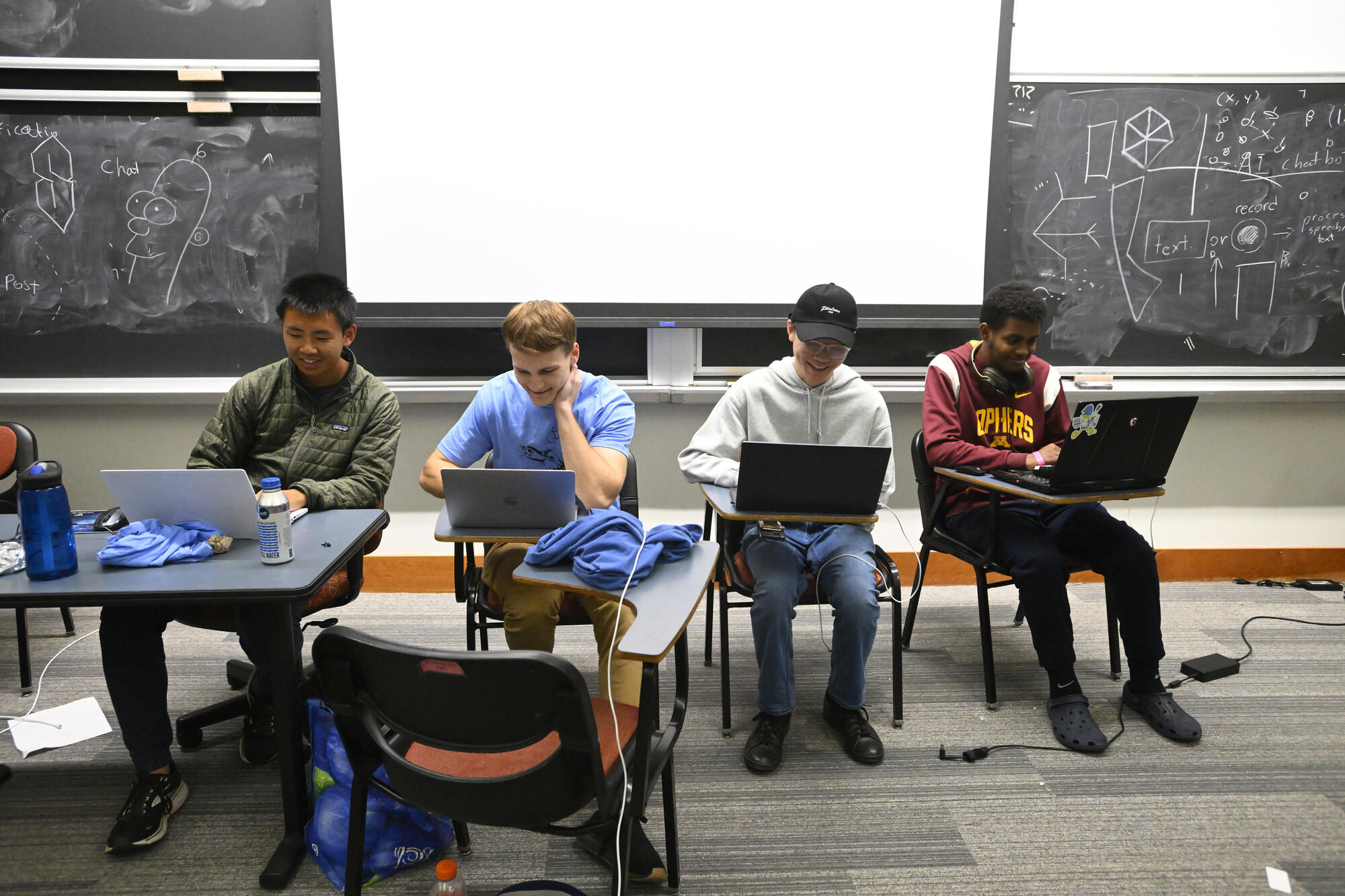
Image credit: Will Kirk / Johns Hopkins University
The projects that emerged from this intense experience were diverse in both concept and application. While some were designed for fun or marketability—like an astronomy-themed video game and a nutrition app that makes counting calories as easy as taking a picture—many addressed critical issues like health care access and human safety; examples include a gaze-based communication method for nonverbal hospital patients and a secure near-field communication system that gives first responders access to patients’ medical data with just a tap.
Teams competed for a portion of this year’s $16,376 prize pool. Top projects were awarded $1,024, $512, and $256—for first, second, and third place, respectively—based on their utility, polish, creativity, and technical difficulty as judged by local tech professionals and Hopkins faculty. Students could also submit their projects as solutions for specific challenges posed by sponsors such as Bloomberg, the Pittsburgh Regional Health Initiative, the Johns Hopkins Center for Bioengineering Innovation and Design, and Marshall Wace.
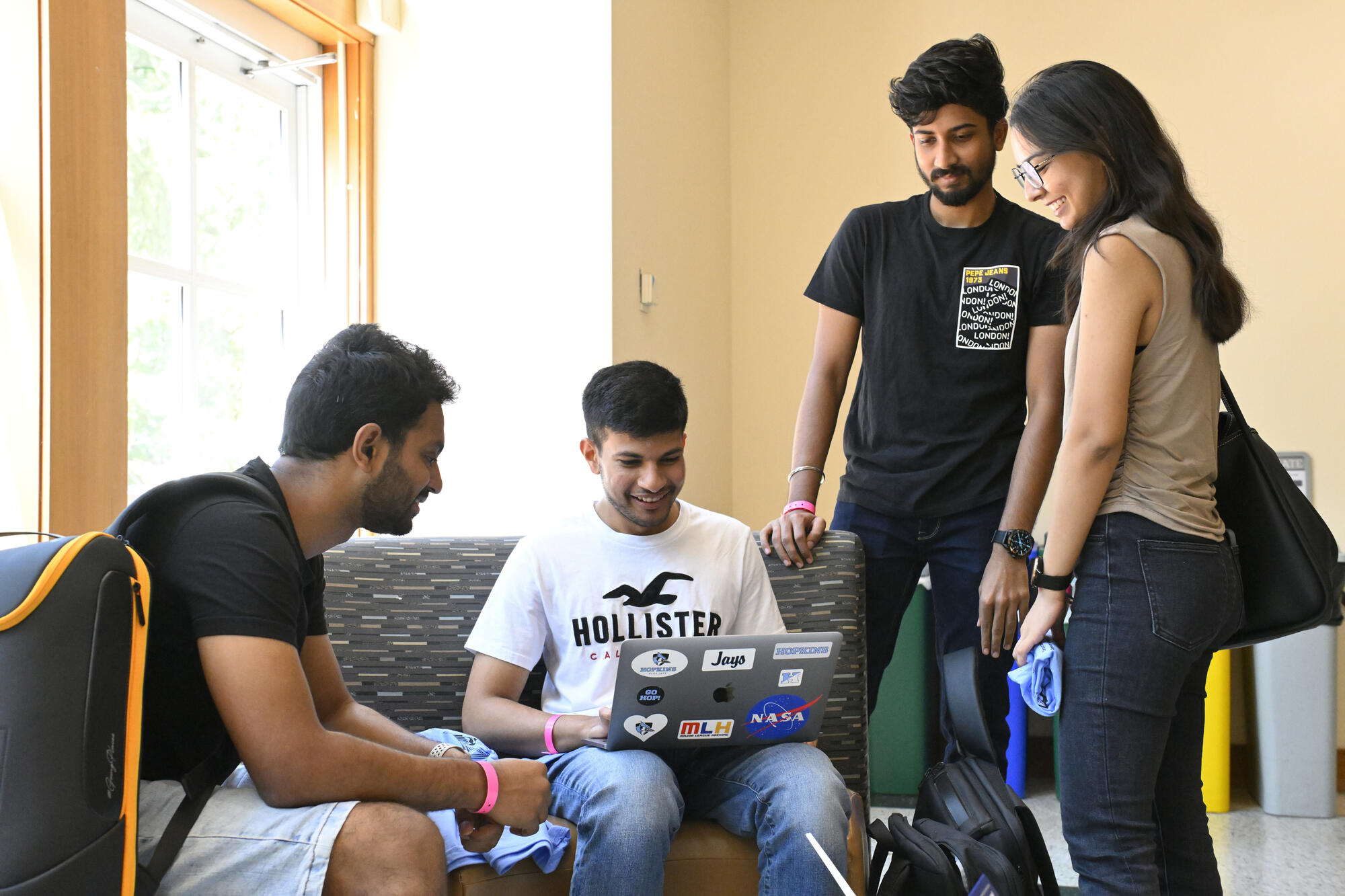
Image credit: Will Kirk / Johns Hopkins University
This year’s grand prize was awarded to the Johns Hopkins team behind NoteSyncer, an accessible, AI-powered notetaking platform capable of transcribing lectures, deciphering handwritten notes, interpreting mathematical formulas, and generating study materials in real time.
Inspired by an email from Student Disability Services seeking class notetakers, Lily Ru, Tom Wang, Andy Shi, and Harry Jiang—all second-year computer science majors or computer science and applied mathematics and statistics double majors—wanted to develop “a solution that could make a real difference for all students, particularly those facing additional obstacles,” according to Wang.
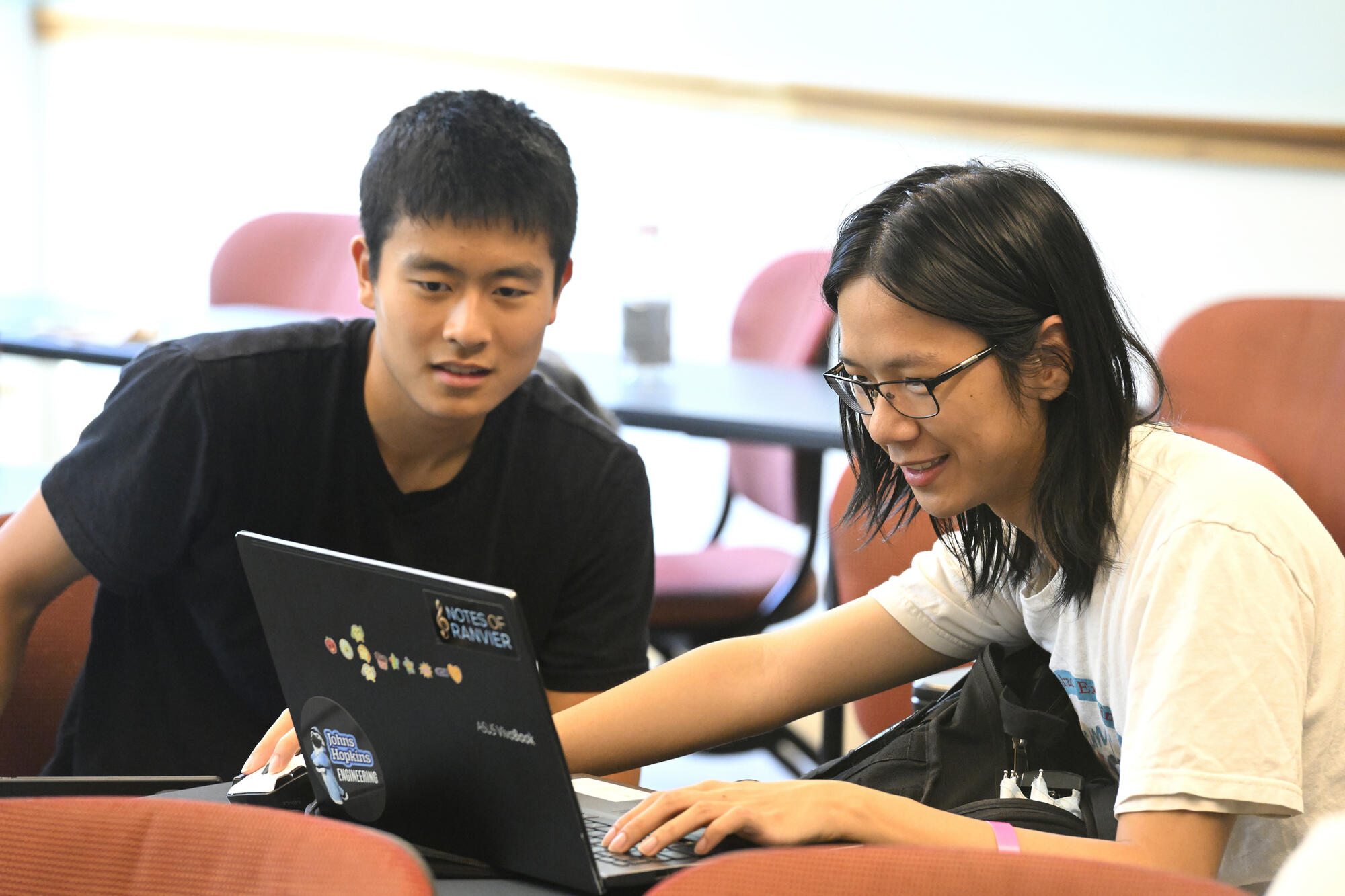
Image credit: Will Kirk / Johns Hopkins University
Notetaking assistance is crucial for students with learning or physical disabilities, including ADHD, visual impairments, and hearing loss. But the hackers’ platform is useful for everyone, they say.
“We each have our own approaches to studying, but one thing we can all agree on is that copying equations and text from the blackboard isn’t the most effective use of our time during class,” Wang says.

Image credit: Will Kirk / Johns Hopkins University
“Instead, we envisioned a tool that benefits all students—especially those with disabilities—by helping them focus on learning rather than on copying down notes,” he says. “We want to give students the time to truly engage with the material instead of just transcribing it.”
The four team members knew each other from class before banding together at HopHacks. For Ru and Wang, this was their second time competing in the annual hackathon.
“The chance to dive into a problem we care about, surrounded by a collaborative hacking environment . . . It felt less like a competition and more like a weekend adventure with my teammates,” says Wang.
The general second-place prize went to Arijit Chakma and Eray Aktokluk, both juniors majoring in computer science at Drexel University, for a mobile robot built to detect early signs of ADHD. Their bot—which also won third place in Bloomberg’s “most philanthropic hack” challenge—analyzes a child’s eye gaze and facial features to precisely evaluate their attention span, helping their doctor to make a more accurate behavioral diagnosis.
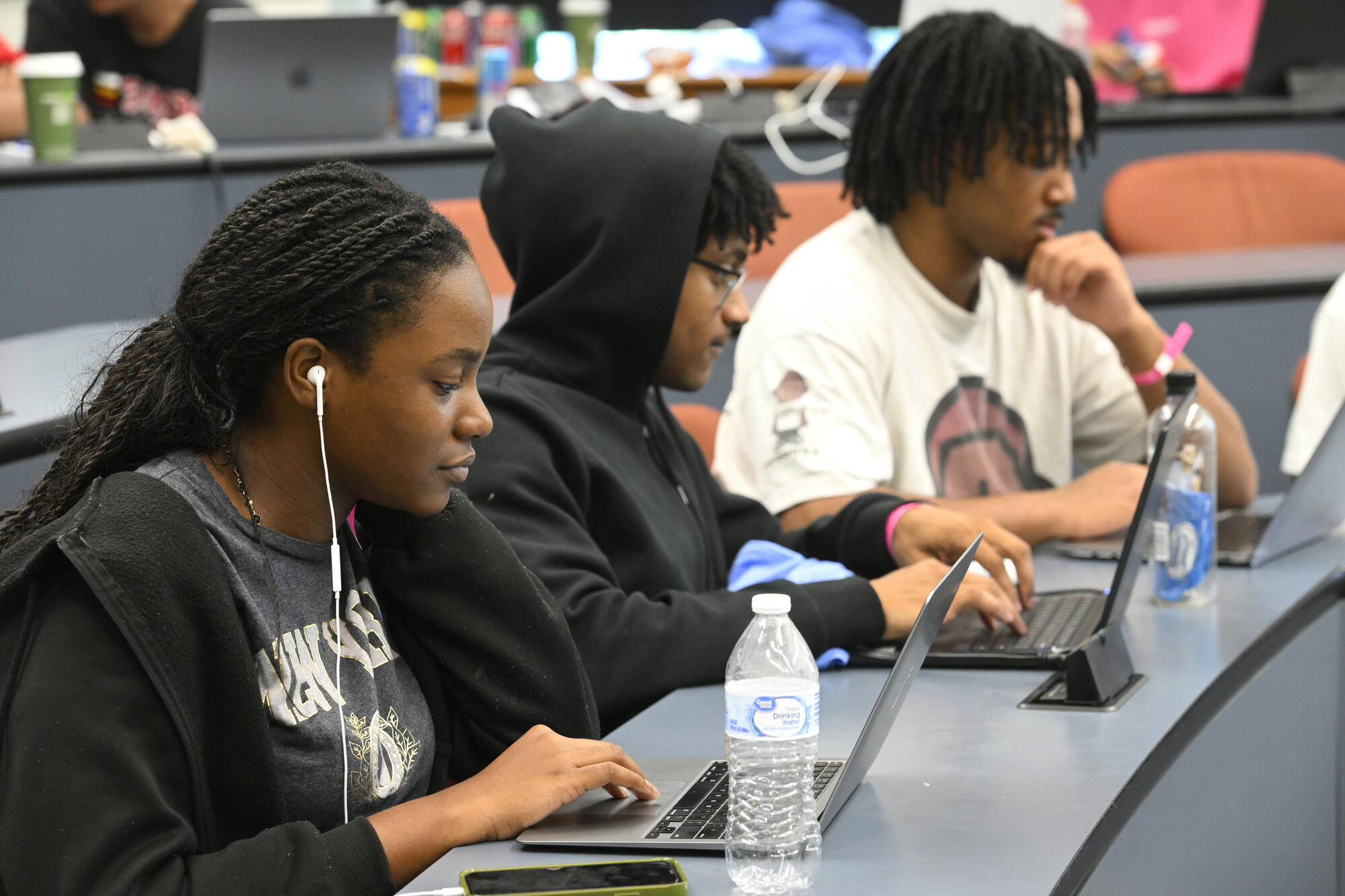
Image credit: Will Kirk / Johns Hopkins University
Finally, a team of four computer science majors from the University of Rochester—master’s student Vuong Ho, juniors Duc Vu and Lam Pham, and sophomore Hoang Le—took third place with Young Heroes, an app that helps children practice calling emergency services for help through an interactive AI-powered simulation.
Watching participants code through the night, fueled by genuine passion and enthusiasm, was incredibly inspiring, according to HopHacks co-directors Muxi Lyu, a graduate student majoring in computer science, and Josephine Deng, a senior majoring in computer science.
“Every project demonstrated a high level of innovation, and we believe that everyone gained something valuable—be it new skills, friendships, or unique experiences,” they say.
See the full list of winners and submissions here.
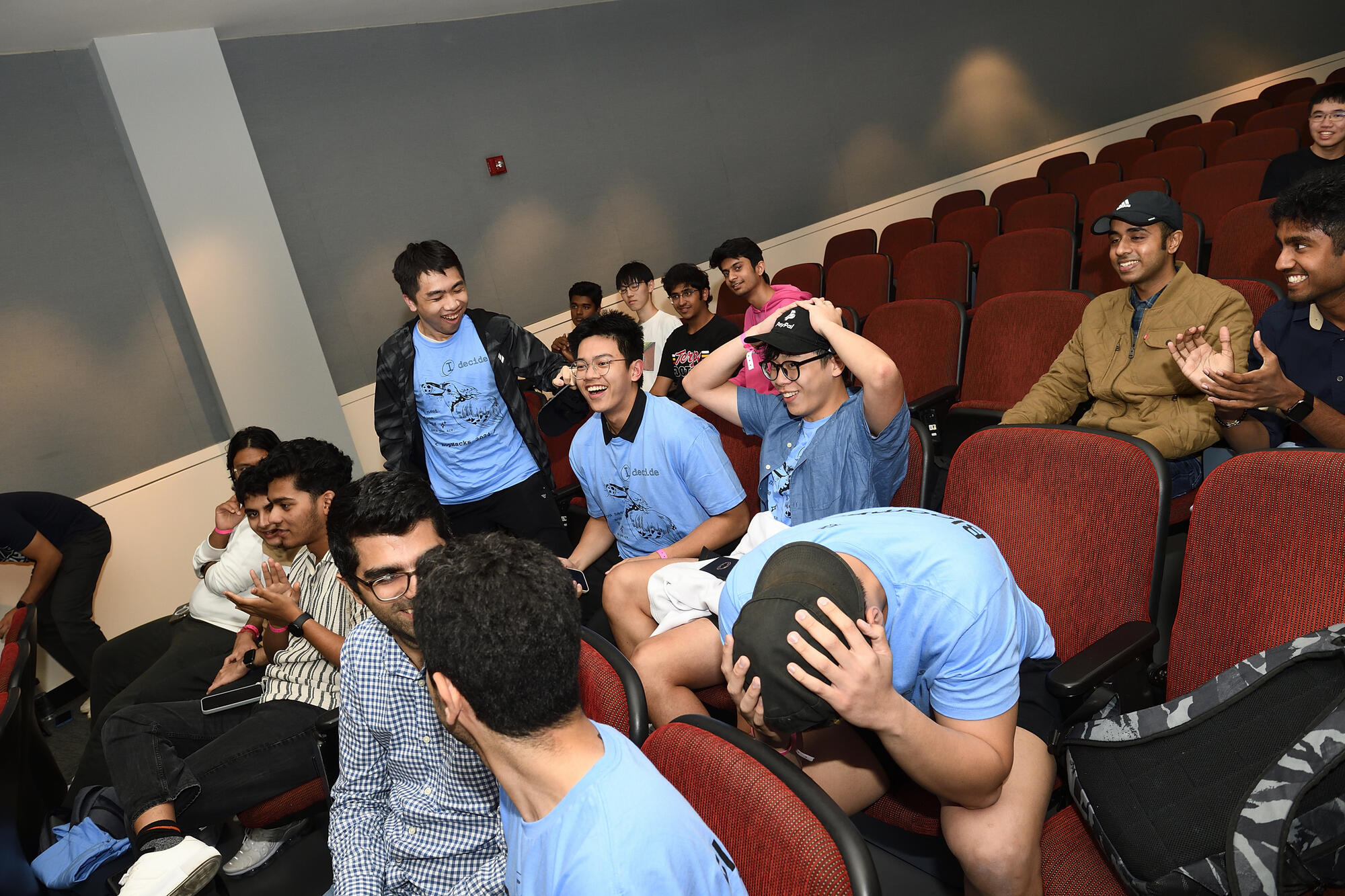
Image credit: Will Kirk / Johns Hopkins University